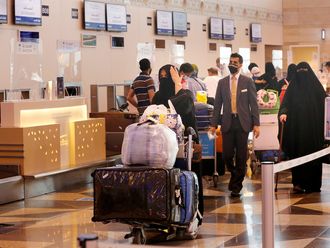Question: What do you advise to those living in the UAE who can only afford to save or invest small sums of money each month - by small sums, I mean people who have between Dh1,000 and Dh2,000 a month to invest or save, after they have paid all their other expenses.
Answer: Let's start by clarifying something — investing isn't reserved for the rich. With proper guidance and vision everyone can and should invest, no matter how small the sum is.
The first step to investing is to sit with an independent financial adviser who will help you to calculate how much you can invest based on your current financial situation. You mention a sum of between Dh1,000 to Dh2,000, but do you have fallback capital that can be quickly available if that "rainy day" comes along?
It is important to properly plan your budget with an expert, so your investments will be an added source of income, and not directly affect your daily financial spending. As a general rule, the longer you leave savings or investments untouched, and the more risk you are prepared to take in where that money is invested, the better the return.
For someone who has not invested before, it is advisable to start by investing small amounts, in low-risk financial products. There are many financial products available and a financial advisor will guide you on these.
An insurance policy is a straightforward product, which is secure and provides a good return. Another financial vehicle is a bond, which is a one-off investment that comes to an agreed end, or ‘maturity', after a fixed number of years. Mutual funds are also a popular investment option for those investing smaller sums — these pool money from a number of savers into a collective investment. The fund is managed by professionals and can be invested in many ways. People feel more comfortable about investing in mutual funds because of the way they diversify in different ways and sectors, so poor performance in one area can be offset by greater performance in another.
However, if you have a specific goal to save towards, such as your retirement or for your children's education, then the better option is taking out an insurance policy. These are specifically structured to help you achieve your desired goal and will give you a higher return on your investment in the long run.
As with other savings plans, insurance policies allow you to choose how much you contribute each month, where the funds are invested, your attitude to risk and how and when you receive your payout, once the investment has matured. By investing in a retirement fund, for example, you could see a considerable return on your investment.
Should you be looking for a short-term savings plan, then you can set up a bank savings account which will start you off. A bank will usually offer flexibility on the amount you deposit each month, and lets you access your cash at short notice. Speak to a financial adviser and set a goal so that when you have saved an agreed amount it can be transferred, if necessary and with their advice, to a financial product that will provide you with the best return. It doesn't matter if you can only start investing with small amounts — you will soon find that even the smallest amounts, well invested, will go a long way in providing your financial security.
The writer is a chartered insurance broker and sales training manager at Nexus Insurance Brokers. Opinion expressed here is the writer's own and do not necessarily reflect that of Gulf News. If you have any questions, please email to advice@gulfnews.com








